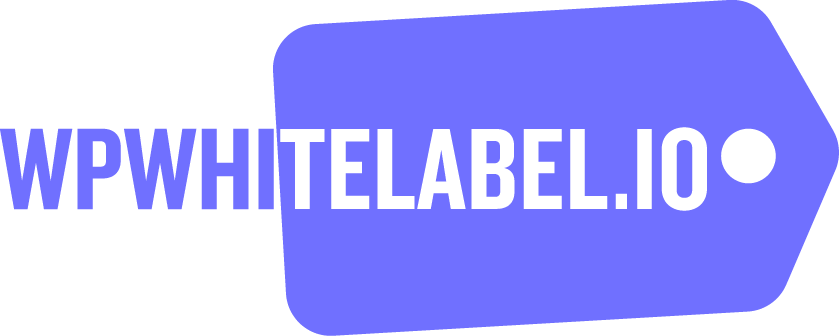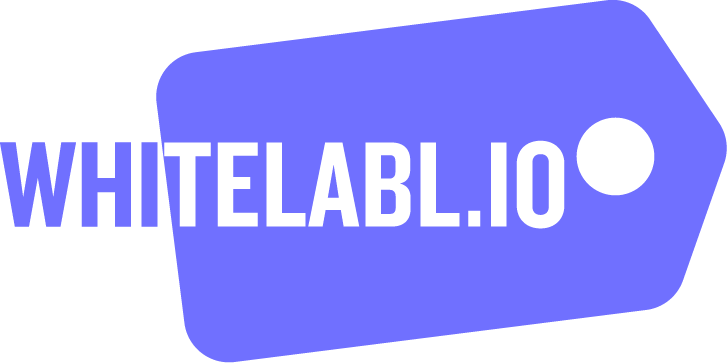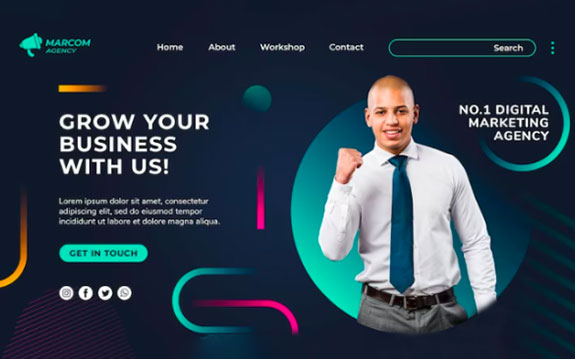Most digital agencies today are increasingly turning to specialized services to meet their web development needs. Two popular options for managing WordPress projects are outsourcing and white-label WordPress development. While these terms might seem interchangeable, they have distinct differences and benefits. In this article, we will explore what each service entails, their differences, and how they can benefit your digital agency.
1. What is WordPress Outsourcing?
WordPress outsourcing involves hiring an external team or individual to handle your WordPress development projects. This can include tasks like website design, plugin development, theme customization, and ongoing maintenance. Essentially, you are leveraging external expertise to complete your WordPress-related tasks.
Benefits of WordPress Outsourcing
One of the main reasons businesses choose to outsource is cost savings. By outsourcing, you can often get high-quality work at a fraction of the cost of hiring full-time employees. Other benefits include:
- Access to Expertise: Outsourcing allows you to work with a global talent pool. You can hire specialists with specific skills and experience that may not be available in-house.
- Scalability: With outsourcing, you can scale your operations up or down based on project demands without worrying about the overhead costs associated with full-time staff.
- Focus on Core Activities: Outsourcing non-core activities like WordPress development lets your in-house team focus on strategic initiatives and core business functions.
When to Choose WordPress Outsourcing
WordPress outsourcing is ideal for digital agencies that:
- Have Variable Workloads: If your project demands fluctuate, outsourcing allows you to scale your team quickly.
- Need Specific Expertise: When you require specialized skills for a short-term project, outsourcing can provide the necessary expertise.
- Want Cost Savings: If budget constraints are a concern, outsourcing can offer a cost-effective solution.
Learn: The Cost-Effectiveness of White Label Website Design Services
2. What is White-label WordPress Development?
White-label WordPress development, on the other hand, involves partnering with a specialized agency like WP White Label that develops WordPress websites under your brand name. The white-label partner provides the development services while you retain control over the client relationship and branding.
Benefits of White-label WordPress Development
Since the white-label partner works under your brand name, your clients receive a seamless experience, enhancing your brand’s credibility and reputation.
- Time-Saving: By partnering with a white-label agency, you save time on recruitment, training, and managing developers. The agency handles all aspects of development, allowing you to focus on client acquisition and retention.
- High-Quality Output: White-label agencies are often highly specialized and experienced in WordPress development, ensuring that the output is top-notch.
- Confidentiality: White-label agreements typically include confidentiality clauses and NDA, ensuring that your clients’ data and project details remain secure.
Read: White Label WordPress Development: Legal and Ethical Considerations
When to Choose White-label WordPress Development
White-label WordPress development is suitable for agencies that:
- Focus on Brand Integrity: If maintaining a consistent brand experience for clients is crucial, white-label WordPress development ensures that all work is delivered under your brand.
- Prioritize Quality: When you need high-quality, professional-grade work, partnering with a reputable white-label agency can guarantee superior results.
- Seek Long-term Partnerships: If you are looking for a long-term solution to handle multiple projects, white-label WordPress development provides a stable and reliable partnership.
3. WordPress Outsourcing vs White-label WordPress Development: Key Differences
While both WordPress outsourcing and white-label WordPress development involve external teams, their operational models and impact on your business are different. Here are the key differences:
Branding and Client Interaction
When you outsource, the external team is typically known to your clients. Depending on the agreement, the outsourced team may interact directly with your clients. In white-label WordPress development, the external team operates under your brand name. Your clients are unaware of the third-party involvement, and your agency manages all client interactions.
Control Over Projects
You have direct control over the outsourced team, including how they work and the specific tasks they perform. You can manage the project and communicate directly with the team. The white-label partner manages the development process, adhering to your brand’s standards and requirements. Your agency only focuses on client relations and project delivery.
Cost Structure
In WordPress outsourcing, costs can vary widely based on the location and expertise of the outsourced team. Typically, you pay for the hours worked or a fixed project fee. White-label development usually costs slightly more than outsourcing because you are paying for a full-service development agency. However, this includes the added value of brand consistency and quality assurance.
Also read: In-House vs White Label WordPress Development Cost Comparison
Flexibility and Customization
WordPress Outsourcing offers greater flexibility in terms of team selection and project management. You can choose specialists for specific tasks and manage the workflow directly. White-label WordPress development provides a more structured approach with less flexibility in choosing individual team members. The focus is on delivering a consistent product under your brand.
Support and Maintenance
Support and maintenance services might be limited or require additional contracts with outsourcing. Once the project is completed, the outsourced team may not be available for ongoing support. White-label agencies often provide ongoing support and maintenance as part of their service offering. They can offer continuous improvements and updates, ensuring your clients’ websites remain up-to-date and functional.
Project Management and Communication
When outsourcing, your agency must manage the project timeline, tasks, and communication. You might need to coordinate frequently with the outsourced team to ensure that milestones are met and quality standards are maintained. In white-label arrangements, the partner agency usually manages the project. They handle the timeline, tasks, and internal communications, while your agency focuses on client-facing interactions and delivering the final product.
Accountability and Quality Assurance
In WordPress Outsourcing, you are responsible for overseeing the quality of the work produced by the outsourced team. This may require additional resources for quality assurance and testing. In white-label partnerships, the white-label agency is accountable for the quality of their work. They typically have their own quality assurance processes in place to ensure that the final product meets your standards.
Know about: DIY vs DIFM vs White Label Website Development
Confidentiality and Intellectual Property
Depending on the contract, outsourcing might involve fewer confidentiality safeguards. Intellectual property rights must be clearly defined in the agreement to avoid future disputes. White-label agreements often include strict confidentiality clauses to protect your brand’s integrity. Intellectual property rights are usually transferred to your agency upon project completion, ensuring your agency owns the final product.
Speed of Delivery
The speed of delivery can vary depending on the availability and workload of the outsourced team. If they are handling multiple projects, it might affect their ability to meet tight deadlines. White-label agencies often have dedicated teams and streamlined processes, which can result in faster delivery times. They are usually well-equipped to handle multiple projects simultaneously without compromising on deadlines.
Risk Management
There is a higher risk associated with outsourcing due to potential issues like miscommunication, cultural differences, and varying quality standards. Effective risk management strategies need to be in place. White-label agencies often have established processes and a proven track record, reducing the risks associated with project delivery. They are experienced in handling projects for other agencies and can mitigate common pitfalls.
Relationship and Partnership
In WordPress outsourcing, the relationship is usually transactional, based on specific projects or tasks. Long-term relationships are possible but not guaranteed. In white-label WordPress development, the relationship tends to be more partnership-oriented. White-label agencies aim to build long-term relationships with their clients, focusing on mutual growth and success.
Further reading: Outsourcing Website Design: Why and How It’s Done Effectively
To Sum Up
Understanding the differences between WordPress outsourcing and white-label WordPress development is essential for making an informed decision. Both options offer unique benefits that can enhance your agency’s capabilities and service offerings.
By evaluating your agency’s specific needs, workload, budget, and long-term goals, you can determine which option aligns best with your business strategy. Whether you choose outsourcing for its flexibility and cost-effectiveness or white-label WordPress development for its brand consistency and quality, leveraging external expertise can help your agency deliver exceptional WordPress solutions to your clients.
Remember, the right choice depends on your agency’s priorities and the specific demands of your projects. Consider both options carefully and choose the one that will help you achieve your business objectives most effectively.



